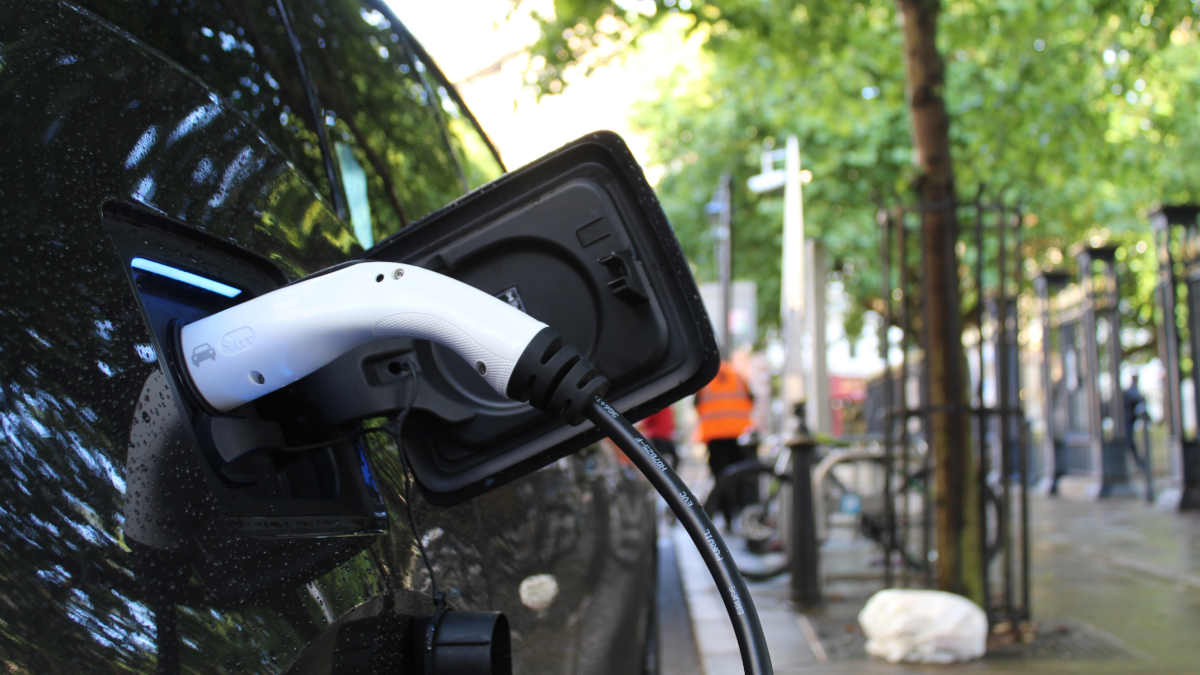This month’s theme is all about creation and destruction, so I thought I’d write about something very close to my heart right now; electric vehicles, in particular, how they are marketed, and the overall customer experience from owning one.
For as long as I can remember, I’ve loved cars. Equally, I’ve also loved technology — and over the years have bought some terrible things (Apple Newton anyone?) as well as some incredible things (Raspberry Pi). When electric cars became a thing, I couldn’t have been more excited about the combination of my two favourite things. And last year I became the proud owner of an EV.
It’s only a VW ID.3, but as my first foray into something entirely new, it ticked all the boxes; looks alright, goes alright, fairly decent range, decent enough spec. It ticked the boxes, even if it looks about as exciting as a letter from HMRC.
When it’s fully charged, it’s fun to drive. The instant torque is borderline hilarious and there’s nothing quite as gratifying as leaving bigger, faster cars for dust as the drivers scratch their heads wondering what’s under the bonnet of this peculiar little car.
But that’s where the fun stops, and where the misery of EV ownership begins…
All the numbers you see are false
From the range advertised and communicated by the car’s display, to the charging speeds advertised by public charging points, it’s all utter bollocks.
7 kwh chargers: pointless. 50 kwh chargers: generally charge at more like 10-20 kwh. Supermarkets have them. You’ll have about 6 extra miles in the battery after your shop. Yay. 120/150 kwh chargers — the fastest I’ve got so far is about 60 kw/h which will charge the ID.3 from 20% to 100% in about an hour. Charging at home is fine if you’re able to do it overnight, but if you need charge in a hurry, forget it. It’s also not cheap. 170 supposed miles at a public charger can cost up to £35.
And when it comes to range, if you drive at a steady 55 everywhere, on eco mode, with the heating and air-con off, then you might get the range. Defrost the screen in the morning with the heater and that’s 20 miles off the range immediately.
Public. Charging. Is. Shit.
Do you like sitting in car parks, motorway services and petrol stations? Do you like queuing for ‘refuelling’ your car — sometimes for hours? Do you like trying to work out how to get something to work often while standing in the rain doing it? If so then EV ownership is for you.
If you can find a charger (because lots advertised don’t even exist in the place they’re supposed to be), and it works, and it’s not being used, and it’s more than 50kw/h, then awesome. Sadly this isn’t the case for me the majority of the time. And on a longer journey you’ll find yourself sat in a car park, watching the charge creep up 1% every 60 seconds, while trying to simultaneously entertain your kids with a game of eye-spy with my little eye, something beginning with ‘C’. (It’s ‘charger’ if you hadn’t already guessed).
Kill it. For now.
While I love the sentiment of electric vehicles, the concept is ultimately too far ahead of its time. The infrastructure and the technology aren’t there yet, and it makes owning and driving one an experience that’s more depressing than enlightening. While my experience might be at-odds with other people’s, I’m far from alone.
A little more honesty would go a long way
There’s a storm brewing — in a similar vain to the actual MPG you get from a car versus the figures claimed in car adverts, or the typical broadband speed you’ll get on a normal day versus the speeds the ISPs quote.
I also feel like people are buying into the idea of getting an EV to do their bit to help the environment (while their carbon emissions when driving are zero, there are still a ton of questions around the environmental impact of battery technology — and whether the electricity required to charge them comes from renewable sources, or from burning coal).
If not batteries, then what?
I believe EVs are a short-term fix to the problem of vehicles producing carbon emissions, and perhaps instead of manufacturers singularly focusing their efforts on battery technology and promoting often unattainable numbers, they could put effort into communicating other alternatives, such as hydrogen, or synthetic fuels such as the one Porsche has developed.
Now there’s a future we can get excited about.
Featured Image: Andrew Roberts / Unsplash






























